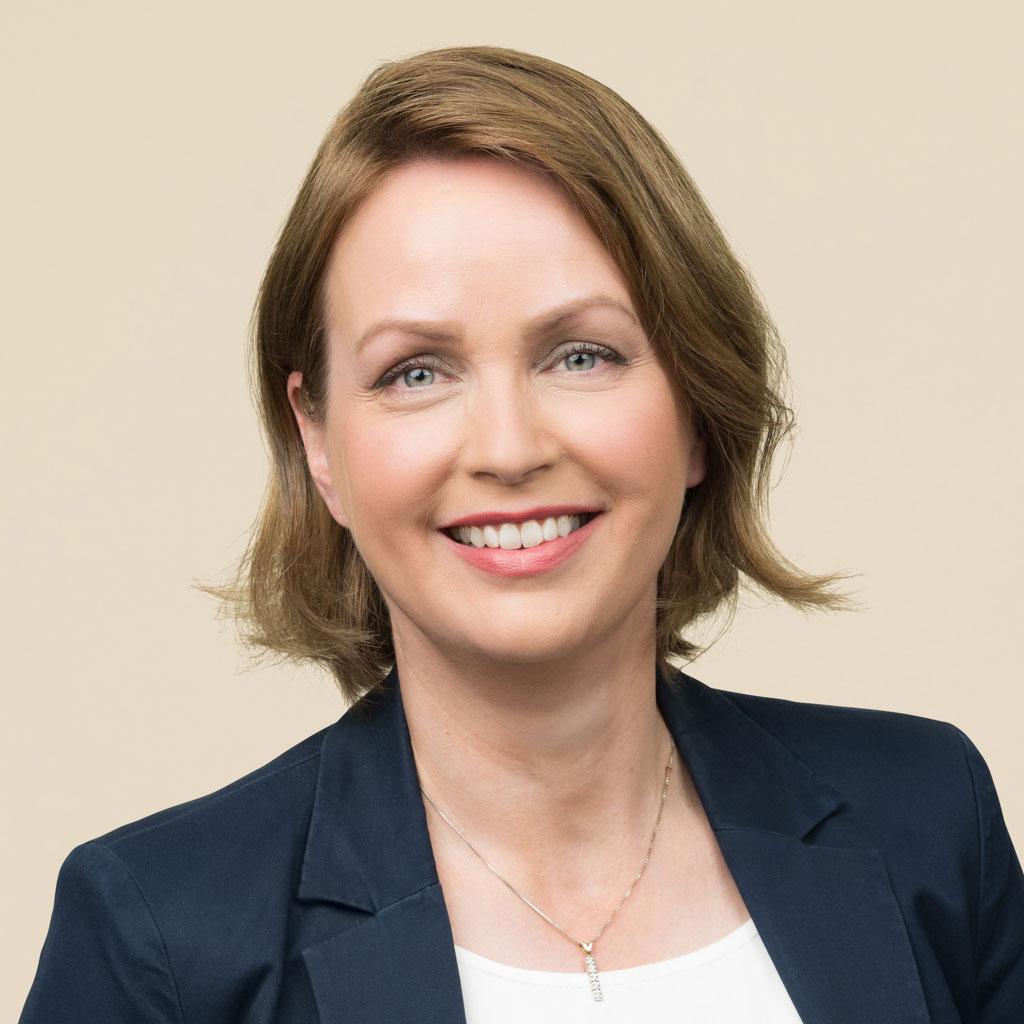Come work at Pilke

Pilke provides early childhood education in nearly 200 private day care centres and pre-schools across Finland. Our operations are diverse and we are constantly developing them. In addition, our day care centres also offer a choice of differently focused teaching.
Pilke goal is to be the best in the early childhood education sector in Finland. This goal is achieved by working together.
Pilke employees take good care of the children, and it is our job as a company to take good care of our employees.
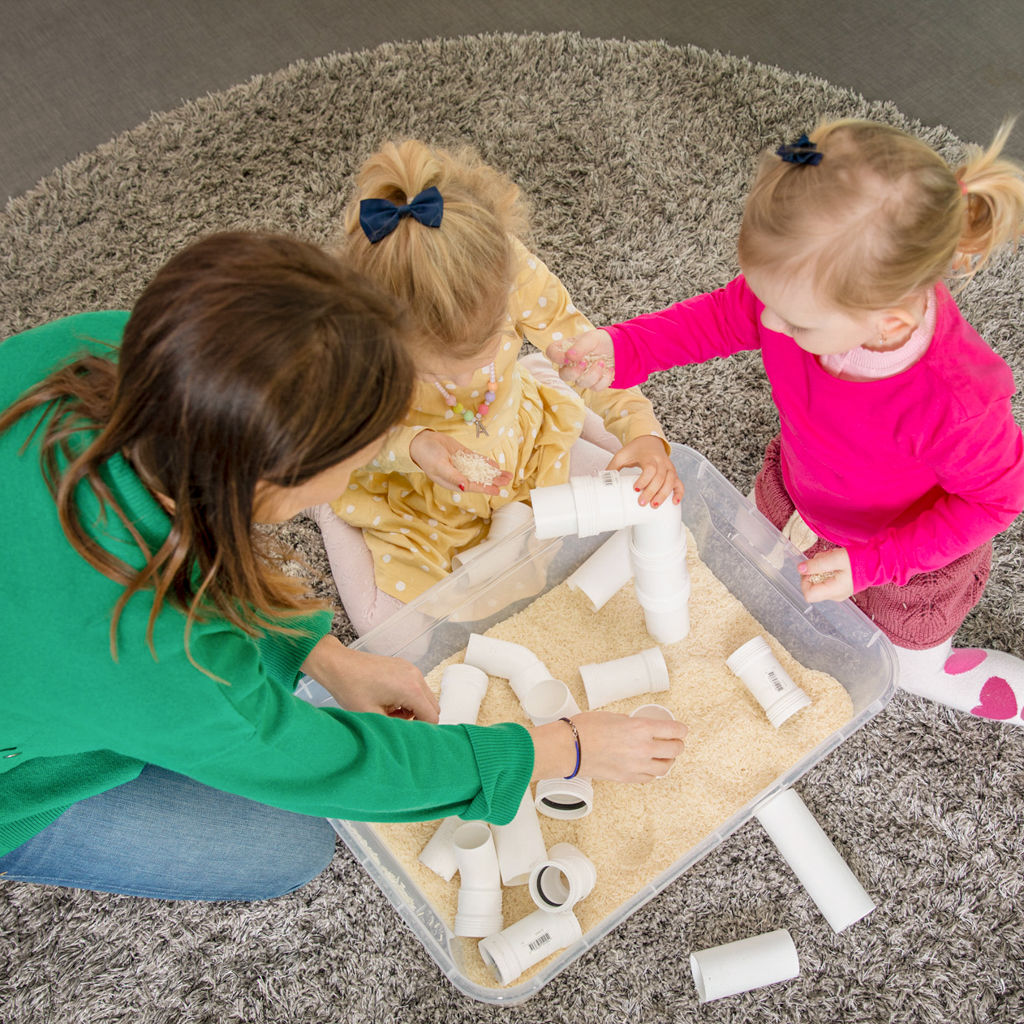
Kindness is an inner calm I share with those around me
When I feel good and confident in my work, I can pass that calm on to the children, too.
My arms are always open. And that’s why the best part of my job is when the children show me how much that means. In the mornings, they run straight into my arms. To them, I’m a kind and safe grown-up they can count on.
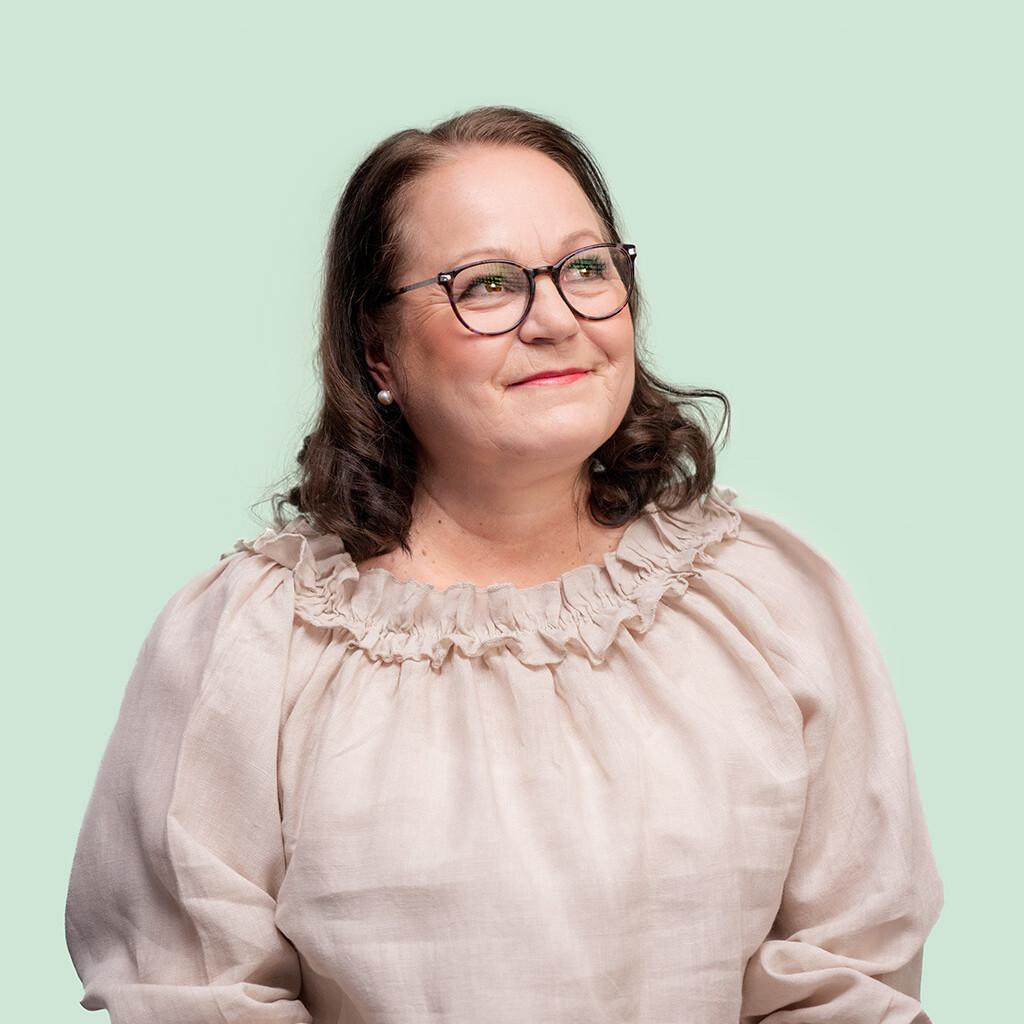


Would you like to support the lives and early years of children through your work?
A child’s first years are irreplaceable: they form a foundation for life as the child develops in leaps and bounds.
Because we value the quality of early childhood education and care, we include learning through play and gentle interaction. We see and recognise the unique abilities of each child and support their strengths. We are passionate about our work, and we build safe and inspiring learning paths for every child.
We create the conditions for children to learn knowledge and skills, as well as how to approach the world with good will and kindness.
Pilke offers diverse early childhood education and care with different themes or learning orientations that support children’s strengths and interests. The chosen theme is included the in the day-care centre’s curriculum and reflected in their daily activities in many ways. Pilke offers the following themes: languages, science, nature, sports, music, art, and expression. We also provide additional training for the above themes.
Creative, free, and self-guided work
The duties of Pilke day-care centres are distributed among the educators, caretakers, and managers to allow every employee to focus on their work and perform at their best. You can read career stories here about working in a Pilke day-care centre.
We value collaboration and operational development. Pilke employees are given opportunities to influence their work, and no one has to do their highly responsible and demanding work alone.
Pilke has an open and tolerant atmosphere with a strong culture of encouragement. We want to work together improve working life through innovative solutions. You can read about our values here.
Every Pilke employee receives competitive pay and comprehensive employee benefits, and is offered opportunities for additional training.
We follow the exact same goals, quality metrics, and qualification requirements of early childhood education and care curricula as municipal day-care centres and nursery schools.
The freedom to develop themselves and to develop quality early childhood education and care
I have worked at Pilke for nearly six years. Pilke employed me as an early childhood education teacher at the music-oriented daycare centre Nummenharju directly after graduation. Throughout my career, Pilke has valued my skills and supported me in the face of difficulties. I’ve had the opportunities to test my wings as both deputy manager and daycare centre manager. Through various work groups, I’ve had the chance to influence Pilke’s high-quality early childhood education and care.
I have participated in incredibly fruitful trainings and had the opportunity to train others too. I have represented Pilke in various trade fairs and other events. In addition, I’ve had the privilege to work with amazing, highly professional early childhood educators as a manager, early childhood education teacher and mentor. All of my colleagues have taught me something valuable.
Pilke has enabled me to grow from a novice to a confident professional. Last autumn, I was rewarded for my good work. Thank you Pilke for placing trust in my skills, for challenging me and for helping me develop myself as a professional!
Minna Puusniekka, Early Childhood Education Teacher, Pilke Daycare Centres
Making the quality and daily activities of our education and care visible
Every day, our early childhood education and care professionals live and experience thousands of different situations with their colleagues and the children and their families. There are just too many to describe or present at once.
Our employees value communality, daily support, and encouragement. They are highly driven to succeed and willing to devote themselves. You can read stories from the workplace to learn more about our employees’ experiences.
We believe that these articles exemplify the daily life, strong experience, and meaningfulness of early childhood education and care at Pilke. These ensure a good day, every day.
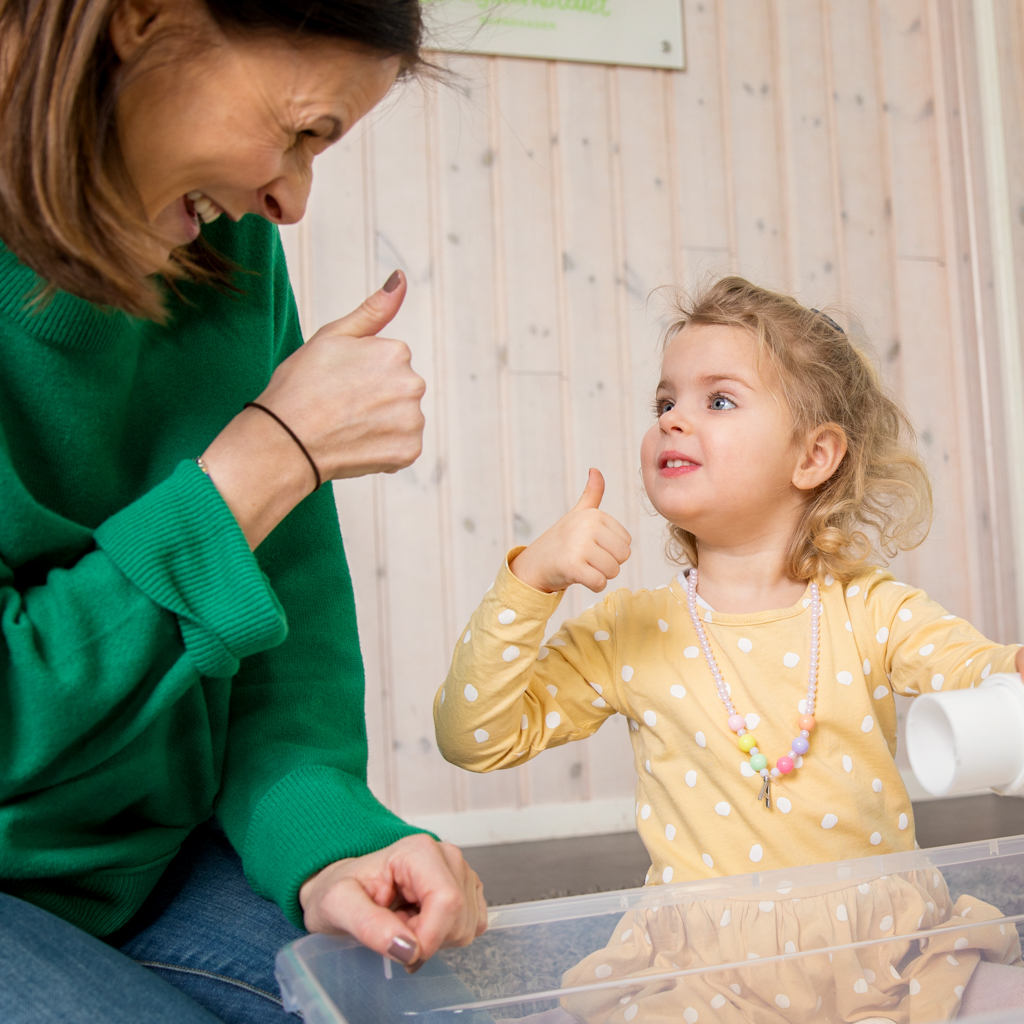
Pilke’s pedagogy and concept of learning
The activities of Pilke daycare centres are always based on the Act on Early Childhood Education and Care (540/2018) and the National Core Curriculum for Early Childhood Education and Care. In addition, our work is guided by municipal early childhood education and care curricula.
Learning through play in gentle interaction
At Pilke Daycare Centres, each child is considered an active knowledge builder who selects and interprets information independently. The child’s active participation is a crucial part of the learning process which is formed in interaction with the surroundings and results from the child’s own activity. Children structure new information based on their earlier experiences, knowledge and views. We integrate the learning material with each child’s experiences and interests.
In order to learn, children must feel safe, well and happy. High-quality interaction relationships and positive emotional experiences enable children to act as unique individuals. Children are naturally curious, creative and active and familiarise with the surrounding world through play.
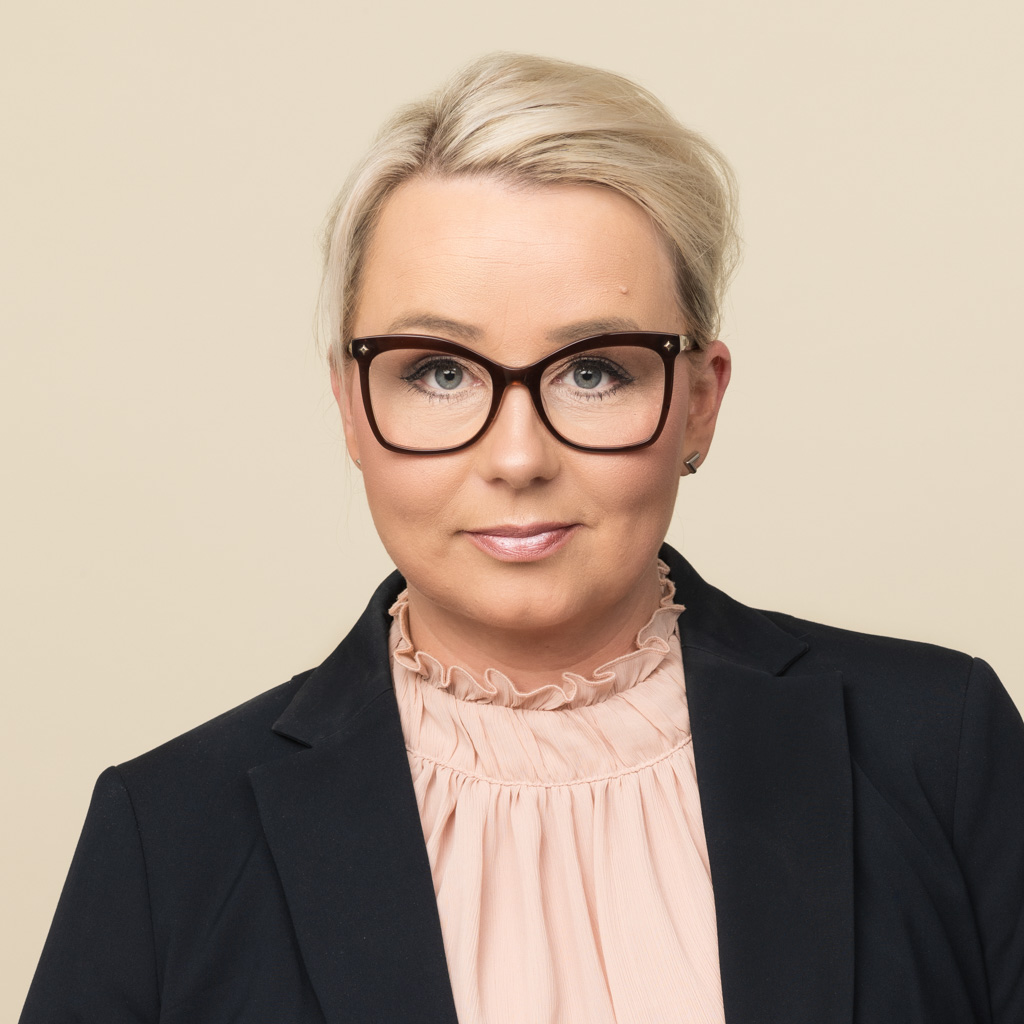
Positive feedback maintains children’s motivation to learn and their image of themselves as learners. Learning should be fun and inspire children to learn more. Children participate in the learning process actively right from the start and shape it through their own activities and ideas.
Mirka Laaksonen, Head of Quality, Pilke Daycare Centres
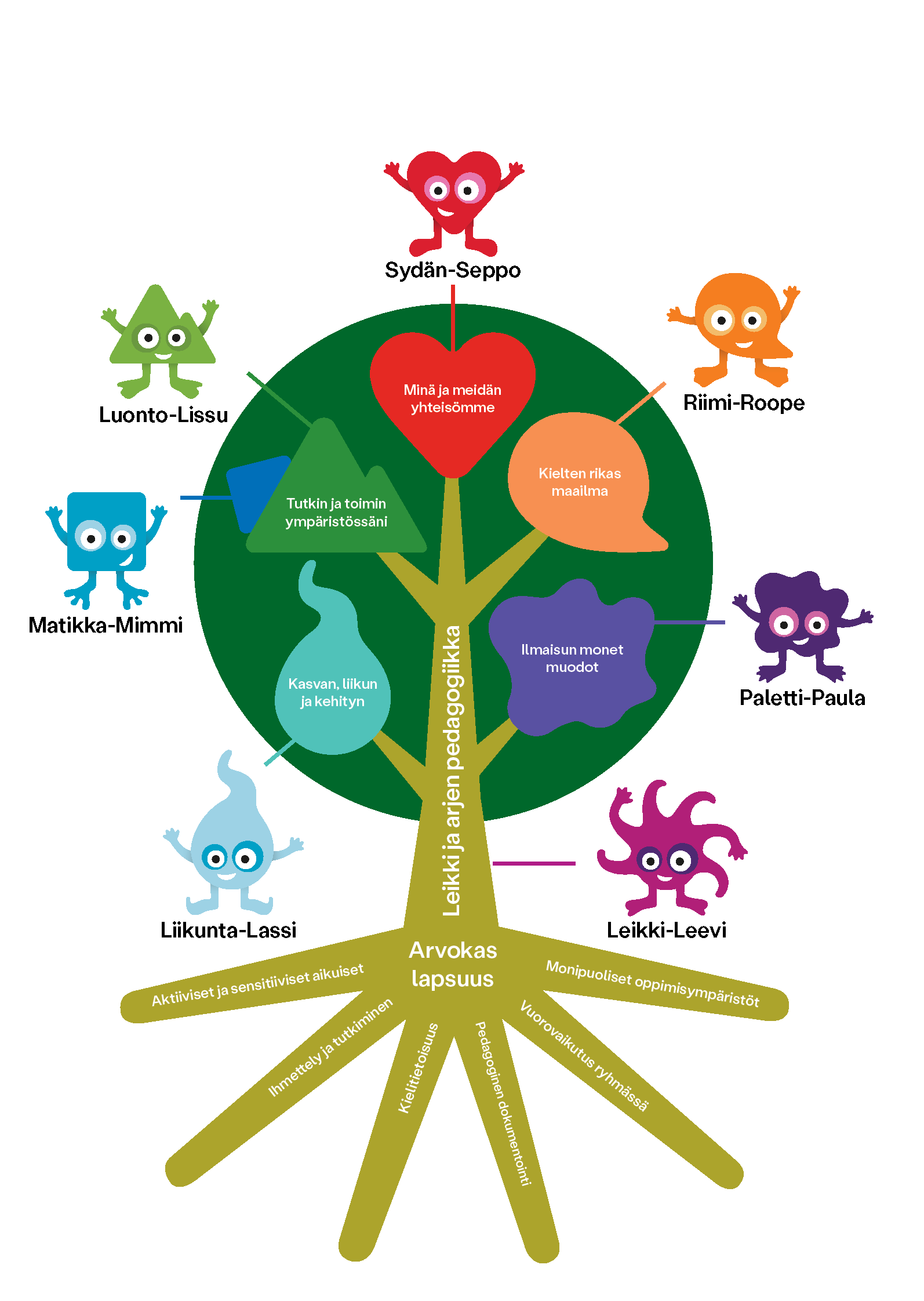
What we do to make the ECEC curriculum seen and felt every day
Cherished Childhood and Play and Everyday Pedagogy form the trunk, the body of our operations.
The roots of the tree are the Pilke ECEC guidelines. The roots describe those methods and strategies we use to provide children with a good, successful day. We can use the roots to explain the important bases of our work.
The leaves of the tree include the learning areas of the National Core Curriculum for Early Childhood Education and Care (2022). Our learning buddies, each corresponding to a learning area, accompany the children in our everyday pedagogy.
Play and everyday pedagogy
Most of a preschooler’s learning takes place during play and daily activities. In everyday situations, including play, our personnel engage children as individuals, activating and motivating them to explore and express their creativity in different learning environments.
Play and learning are intertwined – one often results in the other. Playful learning combines free-form play with programmed activities that vary over the course of a day.
We use everyday situations for learning. Important situations include, for example, getting dressed, eating, etc. Our personnel must be quick to make good use of these moments of learning. Separate activity periods supplement the lessons learned in everyday situations.
In small group activities, pedagogical grounds are used to divide children into smaller groups. Small groups enable goal-oriented support in everyday situations for every child’s growth, development, and learning. They also allow for good interaction and for the children to be approached and considered as individuals. Small groups make high-quality learning experiences possible by calming down and simplifying activities.
Cherished childhood
Pilke day-care centres support and protect childhood and its unique value. We see the children and respect them as themselves. Our day-care centres help build a foundation for a good life and prepare children to be participating members of society.
The inclusion of children in their early childhood education and care means giving them the opportunity to be heard and contribute to decisions that affect their lives and welfare.
This gives children the experience of possessing adequate ability, having a relevant role, and receiving responsibility in their community. In practice, this means including the children and their guardians in both the ECEC planning process and daily functions.
The framework of Pilke’s early childhood education plan
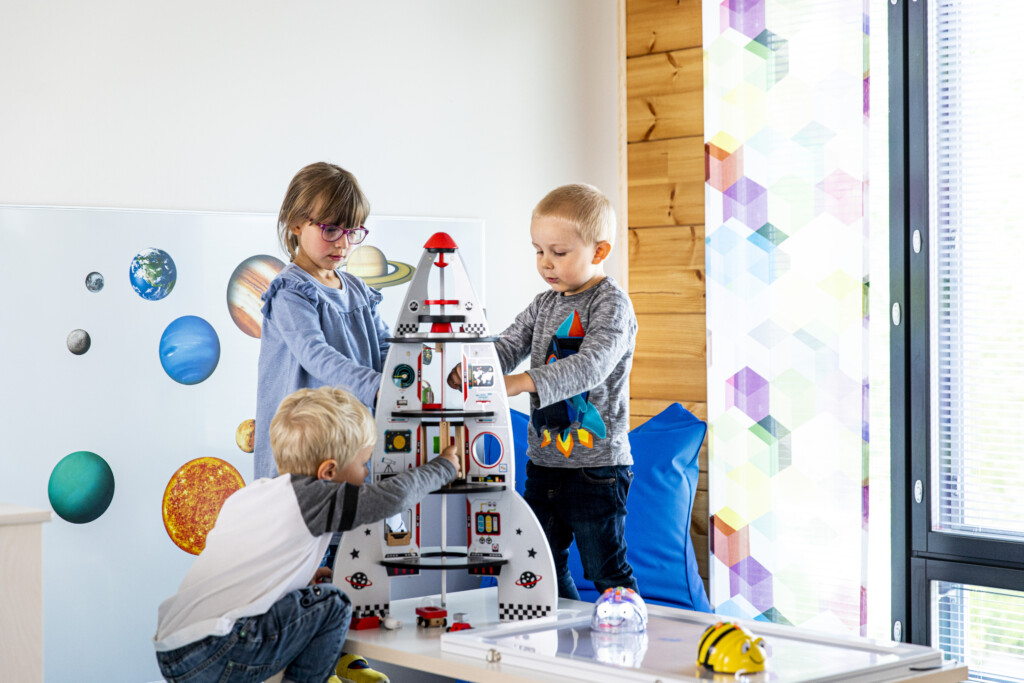
Active interaction from adults supports children’s playful learning. Children must be active participants, not passive recipients. This requires good interaction, as well as the active participation of the child.
The adult’s task is to create the space and precon- ditions for play, encourage the child to play, support and guide the child during play, participate in play, and observe the child’s play. The adults work in order to make everyday life rich and exciting, and to offer the child plenty of opportunities to learn and succeed.
Wondering and exploring form a great foundation for development, learning, and happiness. When children wonder and explore, they gain learning skills. Children are excited to investigate all kinds of things, and are delighted by even the smallest discoveries. We can support children as they explore by showing conta- gious enthusiasm, and thereby support the child on their journey towards new achievements and understanding.
The active use of words and concepts creates a strong foundation for a rich vocabulary, which is vital for linguistic development. In notion practice, we understand the key significance of language in children’s learning and development, interaction, collaboration, identity-building, and in belonging to the community. We also highlight multilingualism and encourage children to use language in a versatile way.
Pedagogical documentation means that we collect and save a wide range of information about the children’s learning, needs, and group activities. The content of activities is planned and developed based on observations from staff and children, and on children’s photographs and drawings, for example.
Pedagogical documentation can help to demonstrate what learning goals have been achieved. Pedagogical documentation is also required when evaluating or developing a child’s need for support in early child- hood education and care.
High-quality interaction is being genuinely and actively present, and sensitivity towards a child’s thoughts and feelings. It enables safe interaction between the child, staff, and guardians.
Positive and encouraging staff support the devel- opment of the child’s compassion, enthusiasm, and participation. A trusting and open atmosphere create the preconditions for communal wellbeing and for the child’s learning.
Our daycare centre spaces are communal, flexible, and adapt based on pedagogical principles.
Children play, learn, and use the spaces in small groups. Learning environments are built together with the children in accordance with the learning areas outlined in the national core curriculum for early childhood education and care with the help
of learning friends.
The environment is developed in accordance with
the child’s growth and learning targets. In a learning environment, the child is an active participant who is involved in the design and construction of the learning environments. Staff support and encourage the child to create diverse and inspiring learning environments.
Flexible learning environments at Pilke
A successful learning environment is a place where adults and children feel good every day.
Pilke provides high-quality and innovative early childhood education and pre-school education in nearly 200 day-care centres across Finland. Our mission is to ensure that every day is a good day for children and our staff. The learning environments in our daycare centres have a big impact on the quality of life for both children and adults.
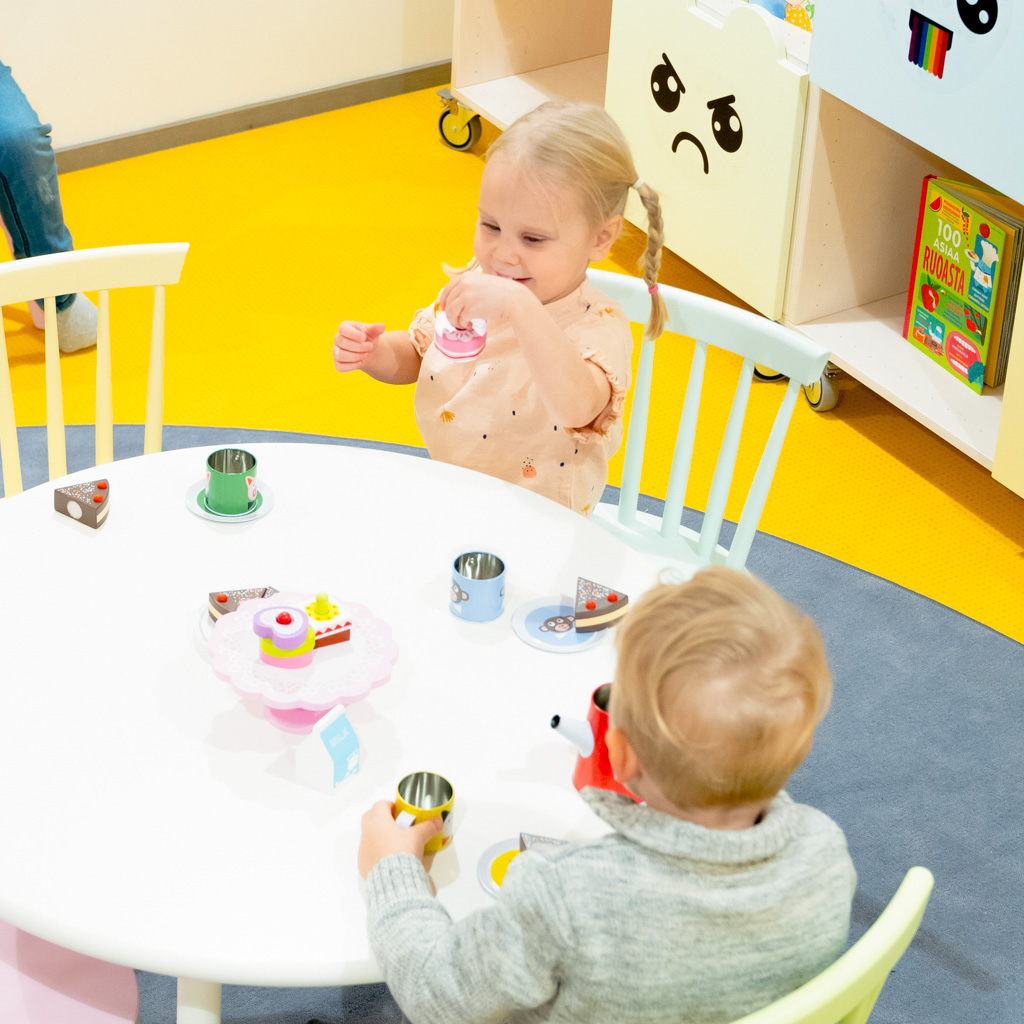
Follow the good day makers on Instagram!
Follow us on instagram!What is it like to work at Pilke kindergarten? Get to know Pilke’s professionals, the good day makers!
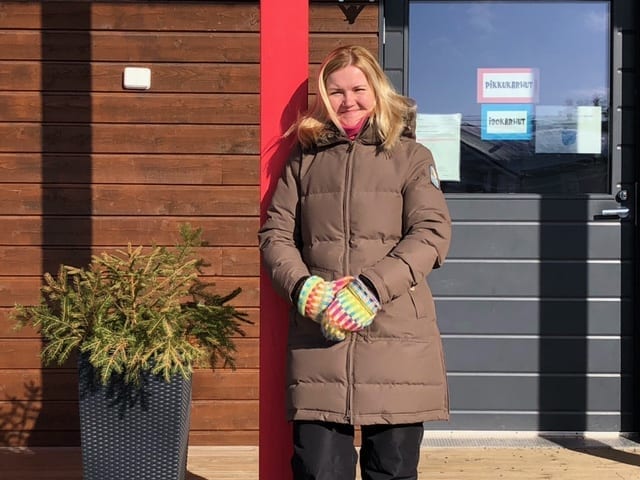
Early childhood education and pre-school teacher Elina Saranki started work at the Mikkeli-based science-oriented daycare centre Pilke Sirius in August. She and her family had just moved to the city on the shore of Lake Saimaa from the Capital Region, from a distance of almost 250 kilometres.
The family left behind a compact apartment in Espoo and started to build a detached house in Mikkeli. The idea about moving across Finland had matured gradually.
Elina examined the employment situation in Mikkeli’s daycare centres. There were openings in both Pilke’s units and municipal daycare centres.
“Sirius’ science-orientation piqued my interest as did the new building as a work environment. As I had several years of experience as a pre-school teacher, I was naturally interested in corresponding duties.”
On the next day, Elina’s phone rang after the job interview – Daycare Centre Manager Henna Tolonen wished her welcome to Pilke Sirius.
“It was an easy decision to accept the job offer. After that, the gears started to turn with regard to other matters as well. We found daycare places for our children in Mikkeli, and started loan negotiations with our bank.”

“My tutor’s support has really helped me integrate with the unit. I feel cared for and experience that even on the organisational level, Pilke pays attention to each individual. We are never left alone. Rather, we are asked how we’re doing and whether we need help.”
When a new good day maker joins the work community, Pilke’s regional and other management takes care of their induction to the duties, the company’s values and principles as well as the required information systems. Daycare centre managers are induced in Pilke Academy, the company’s management coaching programme.
As part of the induction training at Pilke’s daycare centres, each new daycare centre manager is designated a tutor to help them get started. The tutor provides peer support and assistance to facilitate familiarisation with the manager’s new responsibilities.
With our tutor activities, we wish to ensure that the new daycare centre manager does not feel left alone. The tutor is an easily approachable person from the nearest unit – a person the new manager can call with any everyday issue.

Mira Nurmi is an experienced early childhood educator whose career at Pilke started in 2014 when the ownership of her workplace was transferred to Pilke. Nowadays Mira acts as Daycare Centre Manager in both daycare centre Pilke Hilma in Järvenpää and sports-oriented daycare centre Pilke Voltti in Mäntsälä. Many choose to take an exchange period during their studies, but it is rather rare to get a similar opportunity in the world of work. Pilke Daycare Centres decided to make use of the experienced manager’s solid pedagogical know-how and send her to Sotkamo in the Kainuu Region to support the consolidation of a new unit. This gave start to an expertise exchange concept which Pilke plans to keep up in the future.
The three-month exchange project was divided into two parts, in the first of which Mira spent five weeks in the music- and nature-oriented daycare centre Pilke Pajupilli in November and December 2019. Over this period, she familiarised herself with the unit, its situation and staff. At the same time, she planned new operating methods and change proposals that were introduced gradually. In January 2020, Mira returned for two weeks to see how the operation started to run.
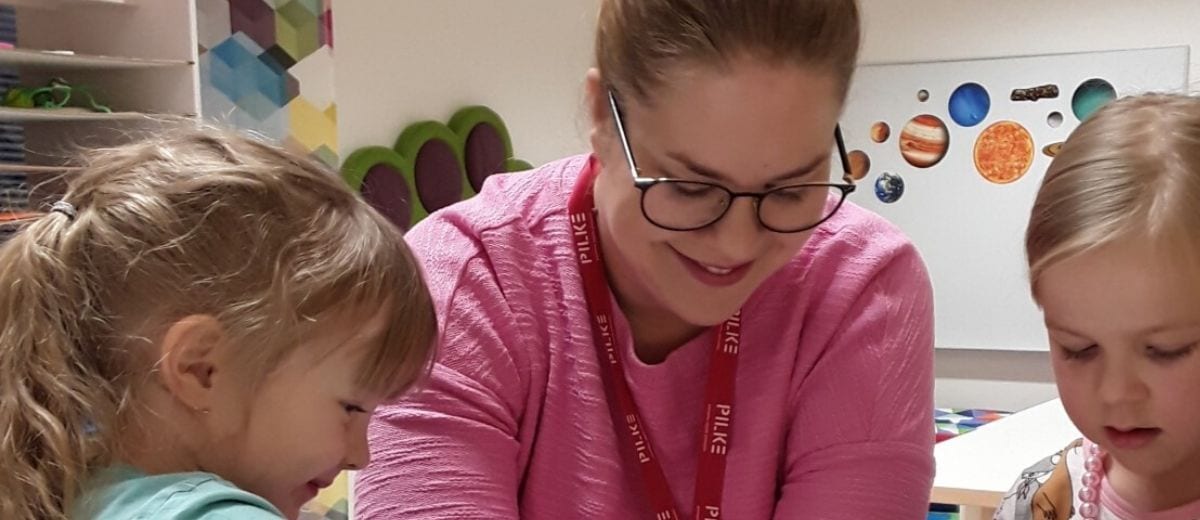
Hanna Salonen, Daycare Centre Manager, watches children play in the snow from the window of her office while reminiscing about the twists and turns of her career of almost 10 years.
As early childhood education and care had been a vocation for Hanna since she was a child, her graduation as a Bachelor of Social Science in 2010 was no coincidence. Pilke Daycare Centre’s job advertisement that described, among other things, the company’s values aroused her interest, and she ended up starting her career as an early childhood teacher in Espoo.
“Already after six months, I was requested to take up the position of Deputy Manager at Daycare Centre Hiirulainen, and I started taking care of administrative matters alongside the rest of my duties. After I moved to Kerava, Pilke offered me work at Daycare Centre Käpälämäki in Vantaa where I acted as Senior Early Childhood Teacher and managed the small unit’s administration. In 2014, I was appointed as Daycare Centre Manager,” Hanna recounts.
When Hanna’s spouse found employment in Tampere, Hanna applied for a new position in the region. It was not long until she was provided with a chance to realise one of her professional dreams and participate in establishing Pilke’s music-oriented unit Nuottisilta in Tampere.
Back home to close the circle
Hanna explains how she used to joke that as soon as Pilke would expand to Lapland, she would move back home too. After the birth of Hanna’s second child, the family started to find attractive the idea of moving back to Tornio, close to their social networks. As it turned out, plans for a Pilke daycare centre in Tornio were already underway, and the dream that had started from a laugh become reality. As a result, Hanna has managed two daycare centres since 2019: the music-oriented daycare centre Huvikumpu in Tornio and the nature-oriented daycare centre Virta in Keminmaa, the latter of whose establishment Hanna got to participate in.
“I’m more than satisfied by how the circle came to a close and how my round trip in various Pilke units led me back home to Tornio. With regard to fulfilling my professional ambitions, I’m grateful for the opportunities I have been provided with as well as for the trust placed on me. Right now, I’m happy where I am. In the future, however, I’d like to increase my professional expertise through further studies,” Hanna states.
A fitting employer with matching values
Similarly to Pilke, one of Hanna’s primary values is optimism. It is the value that Hanna believes has brought her where she is now. According to Hanna, her success is a result of both her own and Pilke’s optimistic attitude.
“What I appreciate in particular is Pilke’s low organisational hierarchy that enables smooth communication with experts. It has always been easy to ask and receive help, and every employee has the opportunity to influence their work. I’m particularly thankful for being able to express myself and perform meaningful work. My strengths have been taken into account and I have been asked to participate in various development projects and work groups.”
Hanna’s typical workday starts by wishing good morning to all the children and adults at the daycare centre. She enjoys her breakfast with the daycare group, after which it is time to immerse herself in office work. By the computer, Hanna plans work shifts and replies to parents’ inquiries about daycare places. Daycare Centre Manager’s responsibilities also include cooperation with the municipality with regard to daycare places as well as the pedagogical management of the unit.
Versatile and rewarding work as daycare centre manager
“As early childhood education teacher, the children were the best part of my job! In my current position, the most attractive aspect is the versatility of my duties. Even though I manage administrative tasks, I don’t consider my work monotonous – the children are always just a few steps away. I enjoy working with different kinds of people and being able to support others. It’s magnificent to be able to participate in the development of early childhood education and care.”
Hanna names her appointment as daycare centre manager the highlight of her career as she had dreamed of it already during her studies. Her career has progressed faster than she could have ever imagined.
According to Hanna, her greatest challenge is the limited amount of time at her disposal: when managing two daycare centres, she has little time for participating in the units’ everyday operation.
“Every now and then I feel inadequate as I’d like to spend more time with the children and see the groups’ operation. Most of my working time is consumed by operational, human resources and customer relationship management as well as financial responsibilities,” Hanna explains.
“The most important task of the daycare centre is to provide each child with a good day – every day.”
According to Hanna, a child’s good day consists of various aspects. In addition to healthy food, safety and warm hugs, each child needs to receive pleasant learning experiences through play and other everyday activities. It is important for the daycare personnel to know how to seize the right moments and provide the children with diverse activities in accordance with their interests

Elina Inkovaara, 38, works as Senior Daycare Assistant at the science-oriented daycare centre Pilke Välke in Pori. A mother of two school age boys, she lives in the countryside with her family. There they run an organic farm, and Elina spends most of her free time in the field.
Elina’s work as Senior Daycare Assistant at Välke started in August 2018. By education, she is a restaurant cook and general upper secondary graduate. When Elina saw a notice about a new Pilke daycare centre being opened in Pori, she sensed the opportunity and contacted the regional manager.
“I emailed the regional manager to ask whether they had need for kitchen or cleaning personnel. She invited me to a meeting where I was interviewed by her and the daycare centre manager. A couple of weeks later, I was welcomed to work,” Elina recounts.
Elina enjoys her work. A regular day starts by making breakfast, doing the laundry and placing orders. The rest of the day she spends preparing lunch trolleys, serving lunch and snack and doing the dishes. At the end of the day, she cleans up the kitchen and washes the snack dishes, after which she can close the kitchen for the day. That is not all, however. Her workday also involves senior daycare assistant’s duties, such as placing catering and cleaning product orders by phone and email.
“Pilke Välke is a pleasant workplace with a positive and constructive atmosphere. The educators are flexible and help us assistants when required. In return, we help them with the children. We always aim to develop the work community and improve its functionality, sometimes through trial and error. We pull the same rope with a humorous twinkle in the eye,” Elina says.
There are also those days when the children and staff are sick, and a few pairs of extra hands are required. Luckily, the attentive work community is ready to help even on the busiest days.
“The things I like the most about my job are the children and quick passing of time. I’m not invisible to the children even though I work at the kitchen. A good workday consists of things that progress smoothly, without surprises and on schedule, not to forget pleasant intercourse with colleagues. I have fantastic workmates, and I get along well with everyone.”
Last spring, colleagues voted Elina to receive an additional paid day off.
“It was a wonderful surprise for which I’m grateful to my workmates. I spent the day off as a supervisor on my children’s class trip. This shows that at our workplace, daycare assistant is as important a role as any. We don’t have borders between professional groups,” Elina says.
According to Elina, a daycare assistant’s work is fitting for a person who likes to manage many things at once. The work requires a brisk touch as there are plenty of tasks to take care of during the day. One has to be prepared for quickly changing situations, and humour is the key to everything.
“Good humour takes you far even in unpleasant situations, such as epidemics or the like,” Elina concludes.
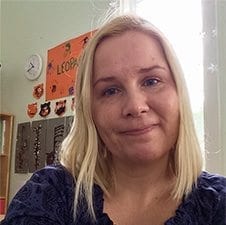
If someone suddenly feels cranky in the daycare centre hallway, it is good to pause and ponder the situation together. Anu Volanen, Early Childhood Teacher, turns outbursts into successes.
“Each day’s best moment is when a child successfully learns something new,” says Volanen. For example, they may learn a new word or an everyday skill – or simply to put on their shoes by themselves.
“For a child, it’s a great success. It’s wonderful to be able to share this joy with the children.”
Volanen works at daycare centre Kanin Kolo in Espoo. She guides the group of 3–5-year-olds that currently has 23 children. The management of the unit’s everyday routines is based on plans prepared by the personnel and listening to the children’s wishes. In addition to providing care and education for the children, her work involves daily cooperation with families and planning the unit’s programme.
“Part of our job is reacting to everyday situations and part is carrying out the prepared plans.”
Even though one plans the day thoroughly and tries to anticipate the day’s events, everything does not always go as planned.
“If something goes wrong, we take a break with the children. We can, for example, sit down and have a chat. If required, we discuss the situation with the whole group and try to figure out why everyone is yelling or why the hallway is congested,” Volanen explains. “A large part of my work is finding the words for everyday life for the children.”
Volanen is generous with praises for her work community:
“People clearly have a drive for development at our workplace. Everyone wants to educate themselves, and the atmosphere encourages renewal. It is one of the reasons I work here.”
For example, the personnel were enthusiastic about examining the new National Core Curriculum for Early Childhood Education and Care together. Another sign of enthusiasm is that the personnel wish to organise delightful events such as May Day celebrations with the children.
“The atmosphere is cheerful and positive. The children are regarded with genuine affection.”
It is a daycare centre where both the employees and the children enjoy coming to every morning.
Vacancies
Pilke has various vacancies at daycare centres, after-school clubs and childcare services around Finland on a constant basis.
Even if you cannot find a position that matches your expertise among our vacancies, we will gladly hear from you.
Ask more!
